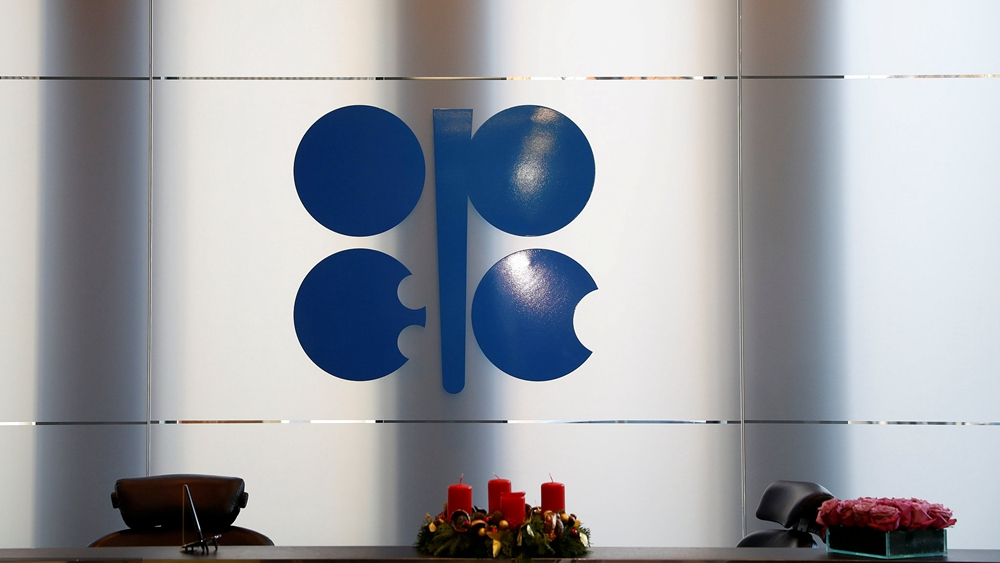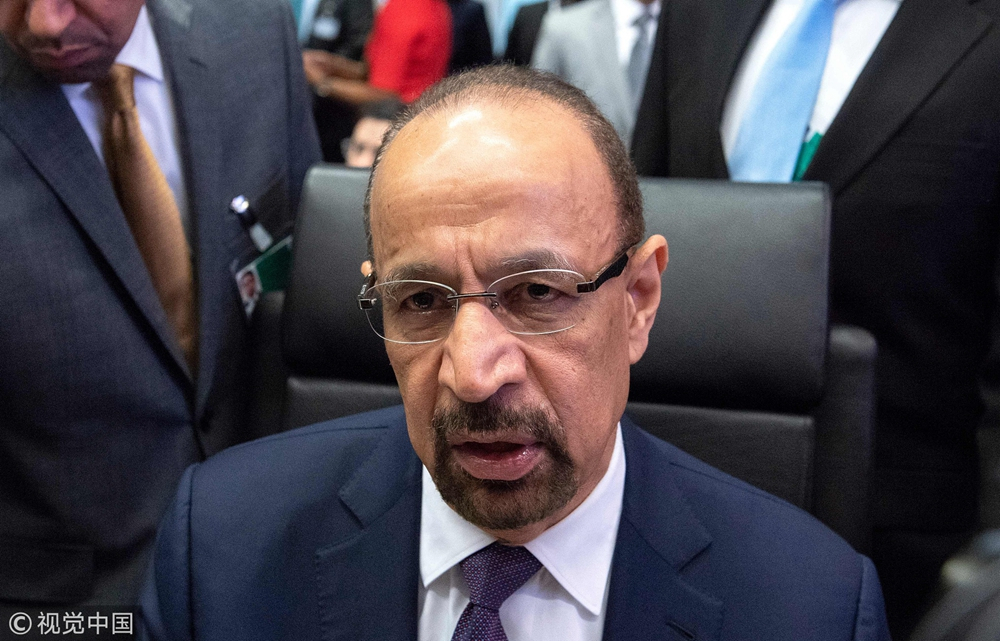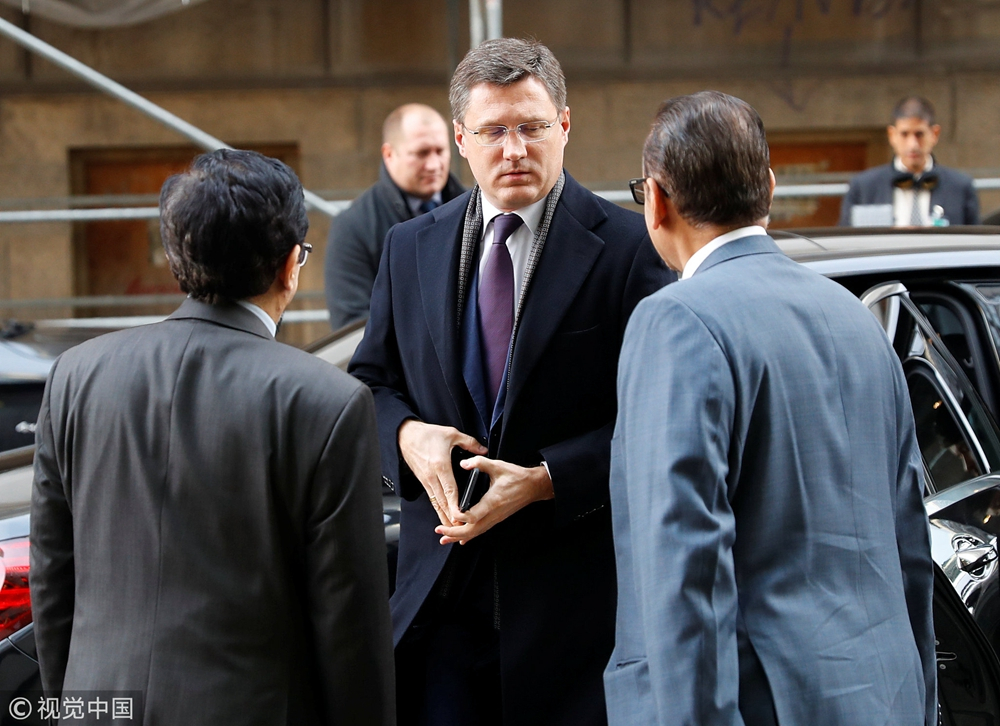
World
21:59, 07-Dec-2018
OPEC talks stall as Saudi Arabia refuses to exempt Iran
Updated
21:20, 10-Dec-2018
CGTN

OPEC talks on oil production cuts reached deadlock on Friday as the group's leader Saudi Arabia refused to grant sanctions-hit Iran exemptions from planned reductions, OPEC sources said.
Saudi Energy Minister Khalid al-Falih, asked on Friday whether he was confident the day's meetings would produce a deal, said: "No."
The Organization of the Petroleum Exporting Countries was meeting in Vienna for a second day running, before discussions later in the day with non-member oil producers led by Russia.
On Thursday, OPEC tentatively agreed an output cut but could not decide concrete parameters as it was waiting for a commitment from Russia, sources from the group said.
On Friday, four OPEC and non-OPEC sources said Saudi Arabia's arch-rival Iran, which came under fresh U.S. sanctions in November, was also holding up a final deal.
"Iran will insist on an exemption until sanctions are removed," one of the OPEC sources said.

Saudi Arabia's Energy Minister Khalid al-Falih speaks to journalists at the 175th OPEC Conference in Vienna, December 6, 2018. /VCG Photo
Saudi Arabia's Energy Minister Khalid al-Falih speaks to journalists at the 175th OPEC Conference in Vienna, December 6, 2018. /VCG Photo
Saudi Arabia faces pressure from U.S. President Donald Trump to help the global economy by refraining from cutting supplies.
An OPEC output reduction also would provide support to Iran by increasing the price of oil.
Possibly further complicating any OPEC decision is the crisis around the killing of journalist Jamal Khashoggi at the Saudi consulate in Istanbul in October. Trump has backed Saudi Crown Prince Mohammed bin Salman despite calls from many U.S. politicians to impose stiff sanctions on Riyadh.
The price of crude LCOc1 has fallen almost a third since October to around 60 U.S. dollars a barrel as Saudi Arabia, Russia and the United Arab Emirates raised output to offset lower exports from Iran, OPEC's third-largest producer.
The price decline prompted OPEC and its allies to discuss output cuts, and Falih said on Thursday possible reductions by those involved ranged from 0.5-1.5 million bpd.
A reduction of 1 million bpd would be acceptable and so far was the main scenario, Falih said, but he added that Russia needed to commit significant volumes.

Russian Energy Minister Alexander Novak arrives at the OPEC headquarters in Vienna, December 7, 2018. /VCG Photo
Russian Energy Minister Alexander Novak arrives at the OPEC headquarters in Vienna, December 7, 2018. /VCG Photo
Russian Energy Minister Alexander Novak met with President Vladimir Putin in St. Petersburg on Thursday and returned to the Austrian capital on Friday morning.
OPEC delegates have said the group and its allies could cut by 1 million bpd if Russia contributed 150,000 bpd of that reduction. If Russia contributed around 250,000 bpd, the overall cut could exceed 1.3 million bpd.
A Russian Energy Ministry source said on Friday Moscow was ready to contribute a cut of around 200,000 bpd and that Iran, not Russia, now seemed the main hurdle for a deal.
(Top image: The logo of the Organization of the Petroleum Exporting Countries (OPEC) is seen inside their headquarters in Vienna, Austria, December 7, 2018. /VCG Photo)
Source(s): Reuters

SITEMAP
Copyright © 2018 CGTN. Beijing ICP prepared NO.16065310-3
Copyright © 2018 CGTN. Beijing ICP prepared NO.16065310-3